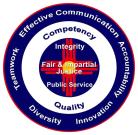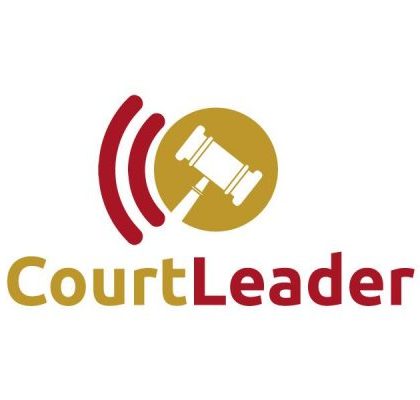
NOTE: this is the third in an intermittent series of posts about the professional values I did my best to live by and communicate as expectations to court staff during my career as a court administrator.
Court offices are composed of many elements, with operational subsections (e.g., administration, information technology, case processing, and judicial support), and many staff members. How do we integrate these elements into one efficient, functional office? Although they are not always easy, teamwork and cooperation are key to effective office operations. Truly the whole is greater than the sum of the parts!
The dictionary defines teamwork as “cooperative effort by the members of a group to achieve a common goal,” and cooperation as “the act or practice of willingly working together toward a common purpose.” Taken together, these two words define the conduct all staff members must make a daily practice, no matter how small or large the task. Ultimately, all of our work either depends on or affects the work of others, so teamwork and cooperation are essential to achieve both court and individual goals.
What can we do to increase the level of teamwork and cooperation? The most important behavior is effective communication (another office value). This includes being honest, sharing information and knowledge, listening without prejudging ideas and suggestions, being polite and respectful, sensitively giving and receiving constructive criticism, and publicly thanking and praising others for their contributions.
In addition, we all should know both our own and others’ strengths and limitations, so we can offer and ask for help appropriately. For example, if you perceive that you can help someone else, do not necessarily wait to be asked to step in and get the job done. Always ask not only how you can do your job better, but how also you can help others to do their jobs better, too. Remember to be empathic, putting yourself in the other person’s shoes. Conversely, when someone offers help or advice, one should assume positive intent, listen carefully, and respond respectfully.
Volunteer when needed or asked. Get involved and participate in more formal improvement efforts, such as projects, teams, and committees. We also must not forget that teamwork and cooperation extend to having fun together, too. Office social functions and camaraderie build community spirit.
Selfish staff members hurt not only their teams, but also themselves. Our work is not a competition between employees or sections. Effective team players are loyal to and support each other, the office, and the court. These behaviors demonstrate qualities that bring higher performance and recognition, including positive evaluations that affect decisions when promotions are available.
Teamwork and cooperation take all staff members making a commitment to and daily practice of communicating, helping, and being involved. Such practices will enable our office to complete its work and more effectively meet the challenges of the future. Teamwork and cooperation, then, are fundamental to our providing excellent customer service and fulfilling the public’s trust in us as public servants.


Norman — Good article. The one comment I would add is that the projects, teams, and committees created must be authentic in order to garner volunteer support. I was involved in numerous committees over the years ostensively to “obtain feedback,” but where the outcome was predetermined and the real purpose of the committee was only to validate what the court leader had already decided. Peter
________________________________
LikeLike
Absolutely right!
LikeLike
Norm you are so right…you taught me a lot in the starting of my career in the court system and I thank you. Enjoying retirement after 35 years as a supervisor!!!
LikeLike
Good to hear you are doing well!
LikeLike